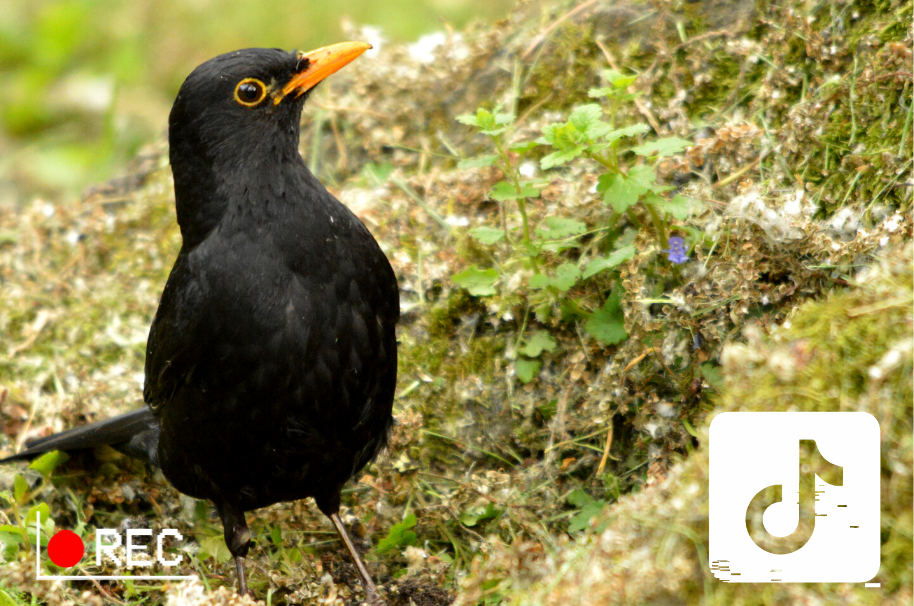I do not know when my friendship with the blackbird began.
Maybe from the moment when an evening class for beginner psychologists of the Institute of Alternative Medicine, where I was studying at that time, was interrupted by a blackbird that came in through the open door of the terrace. It was getting dark outside, and the teacher, careful not to make any sudden movements and frighten the bird, expressed her surprise that it was the bird that had dropped in on us. There is a belief that the blackbird bridges two worlds: day and night – and is aslo psychology: the conscious world and the subconscious.
For me it is the blackbird that heralds spring. At least here in Europe it is the first, loudest and most restless one. Also, I was very impressed to learn how their songs are created. One part of such a song is passed on from a parent blackbird, and then the thrush ? very creatively adds the tunes of a neighbour, and not only a thrush, and then the sounds of the city and human music too. Each individual has his or her own favourite music, and one can even learn to tell them apart.
There was once a thrush living near our house whose repertoire included a verse from the song “I’m a Barbi girl…”. If you learn and hum its tune, the thrush could repeat, respond to your call.
In another flat, our blackbird, whose territory we belonged to, had backing up parking sounds in its repertoire. Our lottment? black friend likes to repeat something similar very similar to the name Rüdiger in a very asking way. We often laugh: Rüdiger is lost again. And in the new flat our territorial thrush speaks a little Chinese (unpronounceable:))
It’s interesting that the blackbird used to be a forest dweller and only relatively recently, since the 19th century, joined humans. Gardenens ? even like to call it a wild chicken. Very often one can observe it digging in the ground next to gardeners, as chickens usually do. And in spring, it is blackbirds that turn over all the old leaves under bushes in parks, throwing them onto paths. It looks like the spring cleaning of a diligent gardener.
In addition, this bird is very curious, it will sit nearby and patiently watch your work in the garden, and when you go away to a safe distance, it will certainly come to dig in the same place.
Despite the common perception that this is impossible, blackbirds can be tamed rather quickly. You can at least get them to walk very close to you, so that you can see each other, by feeding them sult’anas, for example.
As a child, I dreamt of learning to understand bird talk. One would assume that you would have more success to learn the birdlanguage from this birds than others. Listening to their melodious evening roll call, one sometimes gets the impression that a blackbird is asking something serious, and then he will sharply reply to his neighbour or even laugh. After all, a blackbird is an excellent imitator of laughter. Or is he laughing himself?
Author: Tati Weingart







